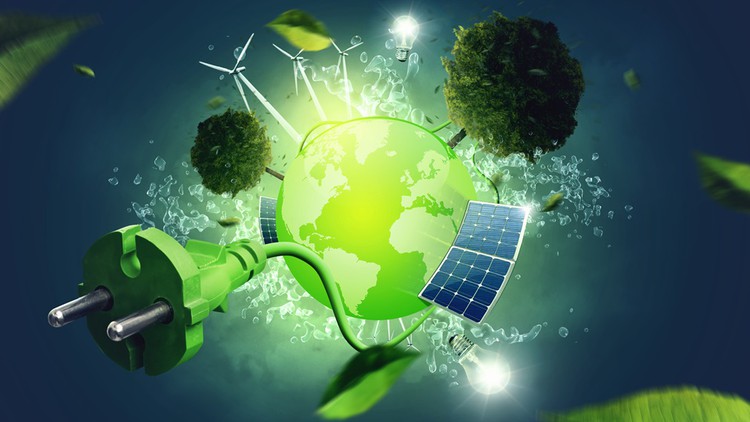In an era where the world faces escalating environmental challenges and economic uncertainties, sustainable technology has emerged as a powerful force driving positive change. With its focus on balancing economic growth with environmental protection, sustainable technology to tackle the pressing issues of our time. By integrating innovative technologies and sustainable practices, we can not only achieve economic prosperity but also safeguard our planet for future generations.
Promoting Renewable Energy Sources
One of the key aspects of sustainable technology lies in the promotion and utilization of renewable energy sources. As we strive to reduce our reliance on fossil fuels, renewable energy options such as solar, wind, and hydropower play a vital role. These technologies provide a clean and abundant source of energy while minimizing greenhouse gas emissions. The widespread adoption of renewable energy not only helps combat climate change but also reduces our dependence on volatile energy markets. As a result, countries investing in sustainable energy solutions can boost their energy security, create new job opportunities, and drive economic growth.
Enhancing Resource Efficiency
Sustainable technology also emphasizes resource efficiency, aiming to optimize the use of finite resources while minimizing waste and pollution. Through the application of advanced manufacturing techniques, smart grid systems, and circular economy principles, we can maximize resource productivity and reduce environmental impact. For instance, technologies like 3D printing enable precise material usage, reducing waste and energy consumption in manufacturing processes. Furthermore, smart grid systems enhance energy distribution efficiency by intelligently managing electricity flows, reducing transmission losses, and ensuring a stable energy supply. These advancements not only result in cost savings for businesses but also contribute to a greener and more sustainable economy.
Enabling Sustainable Agriculture
Agriculture, a crucial sector for global food security, can greatly benefit from sustainable technology. By integrating precision farming techniques, sensor technologies, and data analytics, farmers can optimize resource allocation, minimize chemical usage, and enhance crop yields. Precision agriculture, through the use of drones and satellite imagery, allows farmers to monitor crops, assess soil health, and apply fertilizers and pesticides more effectively. This not only reduces the environmental impact of agriculture but also improves profitability for farmers. Sustainable agriculture practices enable long-term food production while preserving soil health, biodiversity, and water resources.
Revolutionizing Transportation
The transportation sector is a significant contributor to greenhouse gas emissions and air pollution. Sustainable technology offers solutions to transform this sector by promoting electric vehicles (EVs), developing efficient public transportation systems, and exploring alternative fuels. The increasing affordability and range of EVs, coupled with the expansion of charging infrastructure, encourage the adoption of clean transportation options. Electric buses and trains help reduce emissions and improve air quality in urban areas. Additionally, the development of sustainable aviation fuels and the exploration of electric aircraft promises to revolutionize the aviation industry. These sustainable transportation alternatives not only contribute to environmental protection but also drive technological innovation and economic growth.
Promoting Smart Cities
Smart city initiatives leverage sustainable technology to create efficient, livable, and sustainable urban environments. By integrating information and communication technologies (ICT) with sustainable infrastructure, smart cities optimize resource usage, enhance mobility, and improve the quality of life for residents. Intelligent energy management systems, sensor networks, and data analytics enable optimized energy consumption, waste management, and urban planning. By harnessing sustainable technology, smart cities can reduce carbon footprints, increase energy efficiency, and promote sustainable economic development.
From a societal perspective, the benefits of sustainable technology are far-reaching. By reducing greenhouse gas emissions, air pollution, and environmental degradation, we can improve public health and quality of life. Cleaner air, water, and ecosystems not only safeguard the well-being of current generations but also ensure a sustainable future for generations to come. Moreover, sustainable technology promotes social equity by providing access to clean energy, clean water, and sustainable infrastructure in marginalized communities, narrowing the gap between developed and developing regions.



